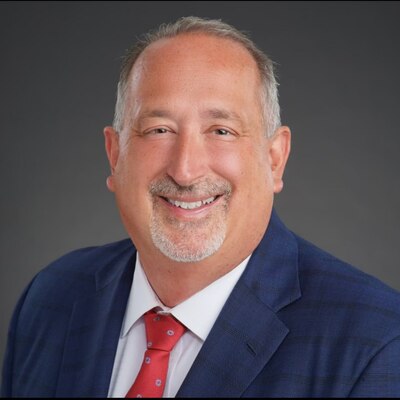Sign up for Chalkbeat Tennessee’s free daily newsletter to keep up with Memphis-Shelby County Schools and statewide education policy.
Tennessee state officials finally released their long-delayed letter grades for schools last month, just before the holiday break, using a new formula championed by Gov. Bill Lee’s administration.
But even before they knew their grades, leaders of a high-performing suburban Memphis school district denounced the system as a sham.
“This is all an attempt to paint Tennessee public schools as failing, thus ushering in a new era of vouchers for all,” a statement from Arlington Community Schools said. It was signed by Superintendent Jeff Mayo and school board members, including Dale Viox, president of the Tennessee School Boards Association.
Meanwhile, other suburban Memphis school districts have begun lining up against private-school voucher expansion, too, another key part of Lee’s education agenda. Lee’s voucher program uses taxpayer money to help families fund private school tuition, and the proposed expansion is expected to be a top legislative priority when the General Assembly returns on Jan. 9.
Lee’s proposal would remove income limits and ultimately extend the program statewide. It would be a huge leap forward for a program that was once billed as a pilot project and barely survived challenges in the legislature and the courts.
Viox said the TSBA is already instructing its members to pass formal board resolutions opposing vouchers. And it’s urging school boards to promote the strengths of their public schools and appeal directly to lawmakers.
“I think you’re going to find more and more people want to speak out about it,” Viox told Chalkbeat, “because there’s a lot of people in this area that I know personally and across the state that care a great deal about public education and doing right by students.”
Mayo and Viox talked with Chalkbeat about their opposition to the voucher program, and why they believe Tennessee’s new letter grade system is part of an attack on public schools.
This interview was conducted on Dec. 11 before school letter grades were released on Dec. 21. It has been edited for length and clarity.
What is it about the A-F letter grades and proposed voucher legislation that warrants the kind of statement you made?
Mayo: The best way that I’ve been able to describe the A-to-F grading system is it’s sort of the appetizer to what’s to come with the voucher system. And I think … if the state or the governor, or (the Tennessee Department of Education) — whomever is pushing for this — can paint the picture that school districts that are successful, high-performing, such as ours, are failing, then that sets the tone for support of the voucher expansion program, which, you know, ultimately, takes money away from public education. …

We are held accountable for every penny that we receive from the state. … Every dime of it we have to say, ‘How is that contributing to students’ growth, or students’ achievement,’ whereas in a private school, that’s not the case. … They’re not held under the same state accountability that we are. There is no teacher evaluation accountability model that I’m aware of. …
And so to say that it’s going to even the playing field is inaccurate. And that’s the whole reason we’re calling this whole thing a sham. … I believe expansion of this has been part of the roadmap since day one.
Viox: It’s a bad idea to take taxpayer money and give it to private entities. … We know that across the nation … voucher programs are just rife with misuse. … And then if you want to talk about inclusivity and diversity: A private school can refuse you for any reason whatsoever. … So as many kids as you may think that you’re going to be able to include, you’re going to exclude twice as many under this program, because private schools are not going to take them, either for their religious beliefs or sexual orientation or whatever. …
You ask why it’s such a strong statement. Because we’re in a strong position. We have high-performance students, we have a very high-performance district, and this is probably not going to trickle down to us for a long time. But what it does do is it affects our educational partners in Shelby County. And if you think you can just forget about public education in Shelby County, and just focus on Arlington, Tennessee, you’re wrong. Because failing Shelby County schools will impact every one of these districts, and everyone in the state. … Across the state of Tennessee, we need to build up public education to what it can be, and not take money away and give it to private companies.
What do you hope the statement accomplishes?
Mayo: It’s debacle after debacle that we’re dealing with, with no guidance, no real assistance from TDOE when these new mandates are handed down. … My staff has to stop, they have to decide: ‘How are we going to do this? What are we going to do to help our students get on the other side of this?’ …
We keep piling on more ineffective accountability measures to pulverize public schools.
— Jeff Mayo, superintendent of Arlington Community Schools
Even if we get an A, that doesn’t change my stance on this. It’s still, it’s a broken process. And instead of scratching that and rebuilding it, we keep piling on more ineffective accountability measures to pulverize public schools. That’s why this statement from my vantage point needed to be as strong as it is. … TDOE asks for input, but we never see our input in the end product of any of these new laws or mandates … . And so it’s exhausting.
Viox: At this point, it is difficult to ignore what the state is doing to attack public education. … And like he said, they’re tired. And as an advocate for public education, I am as well.
Is there any set of accountability metrics that would move you more in favor of voucher expansion?
Viox: Not me. … These guys can go out and raise money for anything they want in any way they want. And public schools can’t do that. … (TSBA is) going to the state to try and say, ‘Hey, look, at least let our PTAs and people do lotteries, because … we can’t do that now.’ But private schools can raise money however they want. ... And what we see with other voucher expansions throughout the U.S. is the private schools are turning around … and raising their tuition for those public school kids by that same voucher amount. So essentially, they’re double dipping.
Mayo: I think it’s a long range plan to continue to siphon money from public schools. … It’s not uncommon for the … TDOE to deliver down mandates that are unfunded, that districts are expected to scramble around and find the money to, you know, make it happen. So if you’re looking at, you know, already being very low-funded when you compare to the nation, what our state funds for education, and then this continuation of vouchers siphoning money away from that, you know, that’s the whole mantra behind this being a sham.
Viox: If you’re this … bent on getting a voucher program, fund it separately. We would have no problem with that. And I think if you look at across the nation, people that have expanded their voucher programs, it’s come with a really hefty price tag.

Can you talk to me more about what specifically that (separate funding) would look like? … If Arlington loses any students, you are losing funding by a declining enrollment.
Viox: If you come to any of our schools and can’t find something you’re interested in, in the various clubs, and school sponsored sports, and all of the things that we offer — just hundreds and hundreds of activities for students. I feel like we would not necessarily lose students to … private schools. … As long as the funding is there and completely separate, that’s honestly not a concern for me. Now, that’s not to say it won’t be a concern for other school districts that are struggling. … There’s always going to be private schools. Any specific government money to help them expand, I wouldn’t be in favor for. …
When you look at all these other states, I don’t know what their oversight is, but I think Arizona in their first year before they expanded their voucher program, on the surface found almost a million dollars, it was over $700,000 in misappropriated funds. … And never forget, that if they give him a year’s worth of public funding, and they live within your district, and they go to that private school, and either don’t make it or don’t actually use it for those (school) funds, they come back to us, and we are going to educate those kids.
If the voucher expansion were to pass as it’s been proposed ... what challenges could you immediately see for Arlington’s district?
Mayo: It will not be immediately impactful to us. But as I stated earlier, I believe the expansion is to continue. I think that is the long-range plan. So eventually, we could be faced with losing students, which impacts funding, which impacts teacher layoffs, it impacts the diminishing of programs that we’ve invested a lot of money in through our capital improvement projects. …
I’m a long-range planner. And I think those are things that you have to look at.
Viox: I’m also a higher level view guy: If it affects Metro Nashville, and it affects Shelby County, then it will affect us. The greatest impact is going to be on them. They are our brothers and sisters in public education, and we cannot just completely discount how it’s going to affect them. Because as it affects Shelby County, it will trickle out into the municipalities as businesses leave.
Private schools are turning around … and raising their tuition for those public school kids by that same voucher amount. So essentially, they’re double dipping.
— Dale Viox, Tennessee School Boards Association leader
Mayo: The A-to-F distinction that I don’t think we’ve really talked a lot about is the impact it has just on our local community. Because let’s face it, Arlington is growing because of our schools. Businesses are coming here. Parents are moving here, you know. And then if all they have to go by is they pull up our website … and they see that Arlington, well, looks like a really good community and everything, but their school district has an F. That’s the only piece of information that parents have, if they’re not familiar with what’s been going on in the state of Tennessee.
Is there anything this conversation is missing?
Mayo: It really takes creativity away sometimes from the school district, because I know we’re in the process of developing our 2025-26 school year calendar. …One of the people in the group said, ‘You know, have we ever thought about a year round school?’ ... If we wanted to do that, how could we ever do that, if we’re having to offer learning camps and all of that as a product of third grade retention? … If we wanted to be innovative and wanted to be creative and experiment with that, how could we do that? We couldn’t.
Correction: Jan. 4, 2024: A previous version of this story said Dale Viox is the president-elect of the Tennessee School Boards Association. Viox is the president of the association.
Laura Testino covers Memphis-Shelby County Schools for Chalkbeat Tennessee. Reach Laura at LTestino@chalkbeat.org.







